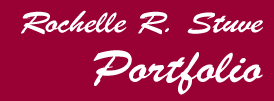People and Fat: The
Powers Influencing America's Discourse on Weight
RESEARCH METHODS
The purpose of this research is to gather data on funding resources
for weight research and to analyze the results from the research
and the discourse that follows the research. The central research
questions are:
- How does the source of research funding and associations
with these groups influence doctors' advice?
- What influences do companies, organizations, and government
committees have on doctors' and American people's attitudes toward
weight?
- What are the power relationships between these groups and
how are they influenced?
- What kind of discourse does these groups use, and does their
discourse differ?
These questions will be investigated through a combination of
quantitative and qualitative methods that will consist of data gathering,
interviewing, and assembling publications and documents. The data
gathering will consist mainly of quantitative methods to gain information
on funding amounts and reveal sources of research funding. The rest
of the research will consist of qualitative methods of gaining insight
into researchers', anti-dieters', and others' discourse in regards
to weight and weight research.
Data Gathering
The data for the research will be collected from a variety of
sources. First it will be gathered from government organizations
and committees such as the NIH and the FDA, viewing documents revealing
what funding was given to obesity and eating disorders research.
Research on eating disorders is included because specialists in
this field claim that the diet industry and America's culture pressure
people, especially young women, into dieting to lose weight, which
then sometimes leads to eating disorders such as anorexia nervosa
and bulimia nervosa. Then the funding money will be tracked to the
studies it was donated to.
Second, the data will be gathered from recently published and
soon-to-be published research for any funding sources and affiliations
related to the research. This information should be available, as
researchers are expected to disclose or make available resources
for funding to show any possible conflict of interests in the research
results. This data will be gathered from large and medium-sized
U.S. universities who are conducting this research and from the
journals that publish their research findings.
Third, data will be gathered from corporations and organizations
with an interest in weight issues. This includes, but is not limited
to, the diet industry (such as commercial weight loss centers, pharmaceutical
companies, herbal corporations, and cosmetics corporations) and
independent organizations that focus on weight issues (such as the
National Association to Advance Fat Acceptance, The Council on Size
and Weight Discrimination, American Obesity Association, American
Society of Bariatric Physicians, the National Association for the
Study of Obesity, and Take Off Pounds Sensibly). When available,
any donations to obesity or weight research and to which studies
it was given to will be obtained.
Interviews
With the consent of the people and organizations involved, I will
conduct interviews of people involved in weight issues. This includes
all of the above categories for the data gathering, such as government,
corporations, researchers, and organizations. The purpose of these
interviews is to reveal their discourse on weight, especially in
relation to the research. Namkyung Jang refers to this style as
"purposeful sampling," which has an advantage of providing
information-rich cases to study in depth ("Dimensions of Apparel
Product Development…"). As Jang points out, "the
biggest advantage of [interview] methods is that it is the best
way to approach the issue in-depth, thus gives an opportunity to
pick up anything missed or overlooked." In order to analyze
fully the discourse associated with the research and its funding,
it will be necessary to conduct these one-on-one interviews to gain
data on the discourse in depth.
Government officials associated with weight research, namely the
NIH and the FDA, would be interviewed to obtain information on the
their stance regarding weight issues, how they approach research
in this area, and what their goals are concerning weight research.
The targeted interviewees will be those on the board of the NIH
and the FDA.
Officers of these corporations will be interviewed to reveal their
companies' goals, their stance on weight loss issues, and their
approach to their industry and its relevance to research and general
discourse on weight.
Researchers will be interviewed for similar reasons as government
officials. They will be asked what their stance on weight and obesity
issues are, how they approach their research studies, what affiliations
(if any) they have with corporations or organizations, and how they
interpret their research results in light of the former questions.
Officers at organizations will be interviewed to question their
opinions on weight and obesity-related issues, obesity research,
and their affiliations with any corporations, government, researchers,
or other organizations. They will be asked what their organizations'
goals are and what they focus on in the area of weight issues.
The purpose of these interviews is to gather data on these organizations'
discourse regarding weight and obesity research to determine what,
if any, relations there are between the research funding, research
results, and their opinions and terminology regarding weight.
|












